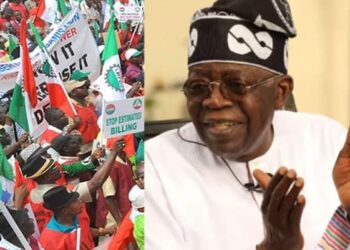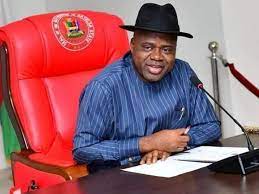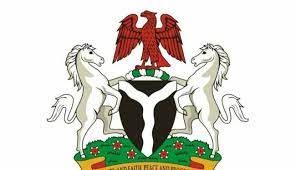The Minister of Power, Adebayo Adelabu, has said Nigerians would soon enjoy improved power supply.
According to the minister, the objective of making the 2023 Electricity Act is to improve energy supply.
He vowed that the citizens would soon record improved power supply nationwide.
He said this Thursday at the 3rd edition Workshop of the Power Correspondents Association of Nigeria (PCAN) in Abuja, with the theme of the workshop, “Resolving Nigeria’s Power Crisis: The Implication of the Electricity Act 2023.”
He said: “Taking all the above into consideration, especially with the liberalization of the sector, Nigerians will soon start to experience the objective that led to the Act which is improved power supply across the country.”
Adelabu said further that a key part of the 2023 Electricity Act was the development of the Integrated National Electricity Policy and Strategic Implementation Plan.
“We are working with the National Council on Power (NCP) to develop and send the implementation strategy to the Federal Executive Council (FEC) for approval,” he said.
He disclosed that part of the federal government’s in its roadmap is the emphasis on the bottom-up approach, unlike the top-down approach of the past.
The minister said the “implication, with the bottom-up approach, is that we will prioritise Metering, Distribution and Transmission infrastructure.
He also said the administration would focus on customers down to distribution and transmission infrastructure in the short- term; “this is to ensure that a significant portion of what is generated currently gets to the end users.
“We will also pay attention to the generation segment particularly in areas of distributed (embedded) power from renewable energy sources, while at the same time, advancing base load power through thermal and hydro plants in the medium to long-term.
“We will further explore our regional energy potentials. We will focus on solar energy in the North, mini-hydro power plants in the Middle Belt and the South-west, hybridized with solar while our coastal states will be identified for wind energy utilisation,” he said.
Charge to media
He charged the media to stress advocacy to emphasise power theft, and vandalism and educate consumers against sabotage.
He also urged them to amplify that the financial liquidity in the Nigerian Electricity Supply Industry (NESI) is dependent on customers paying for electricity consumed.
He described the theme as quite apt, considering President Bola Tinubu’s avowed desire to provide a regular supply of electricity across the country by liberalising the power sector through the enactment of the 2023 Electricity Act.
“The Electricity Act is a significant part of our country’s energy roadmap as it signifies the present administration’s commitment to the transformation of the power sector as clearly stated in the agenda of Mr. President as contained in the Renewed Hope Agenda,” he said.
According to him, the Electricity Act has liberalised electricity generation, transmission and distribution.
“It has also empowered states, organisations and even individuals to generate, transmit, and distribute electricity. Under this Act, the minister said the state government can issue licences to private investors to operate power plants and mini-grids, within the states.”
He added that private investors could also obtain licenses for generation, transmission, system operations, trading, distribution, and supply.
The Act, he said further, could also encourage the integration of renewable energy technologies into the existing grid system while licensees are expected to meet renewable energy obligations as stipulated by the Nigerian Electricity Regulatory Commission (NERC).
He said such incentives included feed-in-tariffs which guarantees a fixed price for renewable energy fed into the grid and tax incentives for investors.
He noted further that the Act guarantees asset protection by allowing investors to sell or transfer their undertakings in the event of revocation of licenses or compensation in the event of takeover of such undertakings.
“What this implies is that everyone involved in the power sector value chain must contribute meaningfully in ensuring the successes that are envisaged by the enactment of the Act.”
PCAN chair’s remarks
In his remarks, PCAN chairman, Comrade Obas Esiedesa, recalled that on November 1, 2013, the federal government handed over the distribution and most generation assets to the private sector, marking the beginning of private investment into the NESI.
He regretted that since then, the expectations raised by the entrance of private entrepreneurs into the sector had largely remained unmet.
He said 10 years down the line, the time had come for the federal government to take a holistic review of the entire power sector privatisation.
“What is now expedient is not necessarily taking away the assets from operators, but finding solutions to the huge challenges facing the industry.
“The Electricity Act 2023 has prescribed far-reaching changes to how the sector has been governed in the past, especially the devolution of power to the states. We believe that the current position of the Act requires strong regulatory bodies to ensure the safety and efficient management of the industry.
“It is worrying to note that with over 13,000 megawatts of installed capacity, the industry is still struggling to deliver 4,000MW of electricity consistently. That is why as a group, we welcome the new initiative by the Honourable Minister of Power, Chief Adebayo Adelabu, that has specifically targeted the distribution sector and the consumers.
“We believe that transmission and distribution networks remain the biggest obstacles to efficiency and effective electricity supply in the country. We call for sincerity on the part of the government in the implementation of this new initiative unlike what we have seen in the Siemens project and quite a handful of other projects,” he said.




